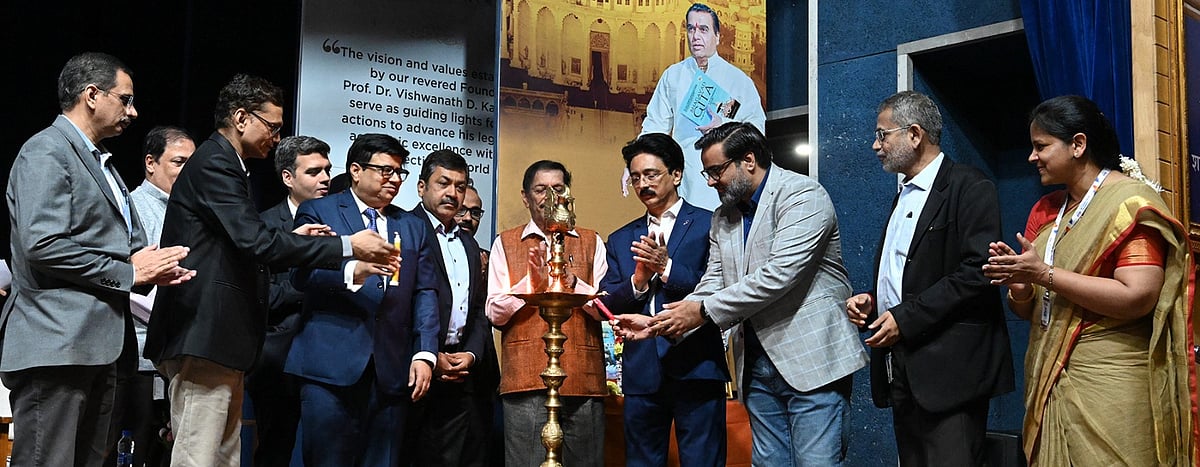Intending to foster a culture of innovation, incubation and invention among students, MIT World Peace University (MIT-WPU) successfully conducted ‘HackMIT-WPU 2025’ – Le Chalang (The Leap of Faith) recently. The three-day competition brought together third-year, final-year undergraduate, postgraduate and PhD students, providing them with a platform to showcase their creativity and problem-solving skills. The event featured multiple categories, including Ideathon, Workathon, Formathon, Bio-thon, Designathon, Hack-AI-thon and Octathon, among others.
The inauguration ceremony was graced by esteemed guests, including Pankaj Jain, CEO, Blue Ocean Steels; Rajesh Korde, Senior Vice President, Technology Infrastructure, Northern Trust Corporation, USA; and Bhupesh Gahrotra, MD, Accenture ATCI.
In his introductory remarks, Prof Dr PB Joshi, Director of MIT’s Technology Business Incubator (MIT-TBI), emphasised the university’s commitment to transforming technically feasible projects into commercially viable startups. He highlighted how ‘HackMIT-WPU 2025’ played a crucial role in equipping students with essential skills such as teamwork, leadership and problem-solving, which are highly valued by recruiters.
Dr RM Chitnis, Vice Chancellor of MIT-WPU, delivered the welcome address, stating that the hackathon provided students with an opportunity to collaborate and tackle some of the world’s most pressing challenges. He praised participants for their dedication to developing innovative solutions that showcased their technical expertise, creativity and passion.
Dr Milind Pande, Pro-Vice Chancellor of MIT-WPU and Chief Convenor of ‘HackMIT-WPU 2025’, added, “This event aimed to instil the philosophy of ‘Mind to Market’ and ‘Paper to Product’ in students. By encouraging their ideas and enhancing their intellectual abilities, we hoped to create not only ob seekers but also job creators. This initiative directly supported the Atmanirbhar Bharat and Startup India missions.”
Speaking on the theme of Le Chalang (The Leap of Faith), Pankaj Jain, highlighted the two major barriers that prevented people from taking a leap of faith: the limitations of the mind and the fear of the unknown. He emphasised that for India to become a global superpower, it needed thousands of startups, which could only be achieved if aspiring entrepreneurs overcame their doubts and took that leap.
Rajesh Korde added, “This hackathon was not just about finding solutions but about discovering the right questions to ask. It was a platform to challenge conventions, think differently and develop ideas that could change the world. India does not need just five companies worth ₹50,000 crore but 50,000 companies worth ₹5 crore each. Events like this hackathon were instrumental in nurturing such enterprises.”
Bhupesh Gahrotra emphasised that ‘HackMIT-WPU 2025’ was not merely a competition but a test of mindset, where technology met creativity. He pointed out that some of the most groundbreaking innovations had originated as college projects. Discussing artificial intelligence, he remarked, “AI is evolving beyond voice assistance. The next frontier is Generative AI, which doesn’t just respond to commands but proactively takes initiative, understands context and completes tasks efficiently. The future will not be about humans using AI, but about humans collaborating with AI to solve problems faster.”
